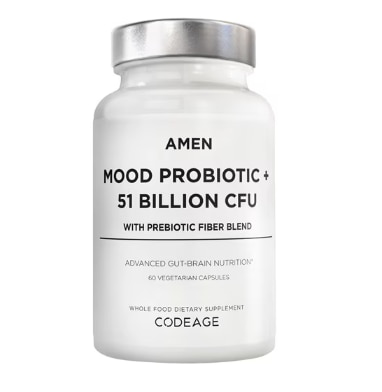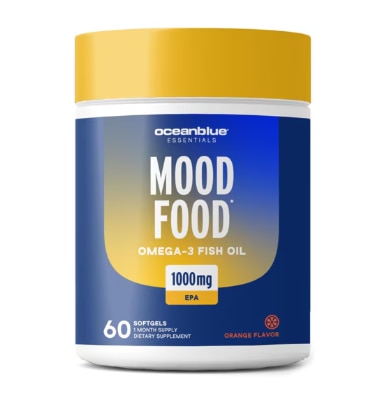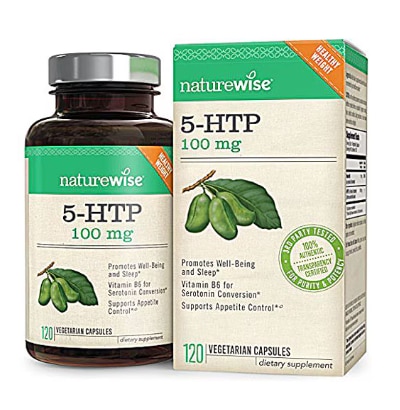“Serotonin” has gone from a term rarely repeated outside of mental health circles to one of the biggest catchwords of the ‘20s.
Hilarious memes are made about it daily. Its hashtag has garnered more than 2.3 billion views on TikTok. People drop it into conversations as often as stress, anxiety and dopamine. Frequently touted as the “happy hormone,” serotonin has been praised as one of the keys to wellness, while a lack of it has been condemned for a whole litany of life’s disturbances.
And yet, serotonin goes well beyond existing as a buzzword or merely a compound equated with those “feel good” vibes it evokes in our current culture. First discovered in the 1930s, the superstar of a neurotransmitter influences dozens of biological and psychological functions. And when serotonin does plummet, it can lead to a host of woes that are, in the end, quite deserving of the ink it has received.
In this guide we’ll leap into what serotonin is, the critical tasks it plays a role in, and how you can bolster your levels—naturally.
What is serotonin?
Serotonin acts as both a hormone and an inhibitory, monoamine neurotransmitter, or what’s regularly referred to as a “chemical messenger.”
Translation?
It, along with other neurotransmitters like dopamine, adrenaline, histamine and glutamate, transports chemical alerts from neurons to cells, muscles and glands throughout your body to, well, inform it what to do.
Serotonin is also especially active in two imperative parts of your brain—your dorsolateral frontal cortex and amygdala—which have a hand in emotional control and cognitive regulation. Meanwhile, hormones in and of themselves help symphonize long-term internal processes to promote balance and well-being.
Approximately 10 percent of serotonin is manufactured in the brain stem (the raphe nuclei). The rest is manufactured in the intestinal lining of the gut, where it’s delivered to the blood stream and absorbed by circulating platelets. As a result, serotonin has sway over a broad array of mental and physical behaviors and actions.
What does serotonin do, exactly?
Think of the most important parts of what make up a good day. For many, it includes an upbeat mood, a hefty amount of confidence, a sharp mind, a healthy appetite, sound digestion…and perhaps a few moments of intimacy with your partner.
Serotonin, which is manufactured by tryptophan, impacts all of this. More specifically, the neurotransmitter modulates:
Mood
Serotonin’s primary claim to fame is due to its profound effects on mood and emotional management. Unlike dopamine—which offers bursts of motivation and magnifies rewards to the point of euphoria—optimal serotonin levels typically result in feelings of serenity. And while it does foster happiness, it more so keeps emotions at an even keel, thus helping you remain steady(and contributing to your overall sense of well-being).
Cognition
Serotonin receptors are found throughout the brain, not just in the amygdala and dorsolateral frontal cortex mentioned above but also in the hippocampus. All three of these regions are involved in learning, memory, and executive functions—precisely the things we need for mental fitness and finesse. Indeed, a recent study published in the Journal of Alzheimer’s Disease discovered that individuals with mild cognitive impairment (oftentimes a precursor to the development of Alzheimer’s) demonstrated low levels of serotonin (if ever there’s a reason to keep your levels in check).
Sleep
The association between serotonin and quality sleep isn’t entirely understood, at least not yet. What we do know, however, is that the pineal gland transforms serotonin into melatonin, a hormone that’s imperative to regulating your sleep-wake cycle. What’s more, the same regions of your brain that govern your sleep patterns hold serotonin receptors. In other words, the right amount of serotonin may result in the rejuvenating rest you need to shine.
Digestion
Recall how the lion’s share of serotonin in your body is found in your intestinal tract? This alone ought to underline its effect on your digestion. Research indicates that serotonin not only aids with digestion but also moderates your appetite by sending signals to your mind to tell you when you’re sated. Further, serotonin acts as a shield in your gut by detecting toxins; when it does, it releases even more serotonin, which helps eliminate the harmful matter. In fact, serotonin was initially named enteramine because of its capacity to contribute to smooth digestion.
Libido
If your sex drive has taken a nosedive, you may want to consider searching for fresh methods that will organically raise your serotonin levels. Why? Serotonin’s immense effect on mood also plays into your libido.
Additionally, proper serotonin levels naturally promote bone health, blood clotting, wound healing, and pain perception. Is it any wonder why we’re presently obsessed with it?
What problems arise with imbalanced serotonin?
Thank the amount of misinformation on the internet for the misunderstanding that low levels of serotonin are the only issue with this oh-so-essential neurotransmitter: Both too low and too high of serotonin may prompt a cornucopia of complications. Let’s dive in.
High serotonin
Excess serotonin rarely makes the news, never mind our social feeds.
And yet, it’s as problematic as its antithesis (if not, in some cases, worse). Technically referred to as “serotonin syndrome,” overly high serotonin levels are often the result of taking incorrect dosages of medications containing serotonin, illegal drugs, and certain supplements. Its main symptoms include:
- Nervousness
- Restlessness
- Anxiety
- Heavy sweating
- Shivering
- Confusion
- Diarrhea
- Muscle twitches
More concerning, serotonin syndrome may lead to blood pressure vacillations, high fever, loss of consciousness, seizures and even death.
Low serotonin
On the flipside, low serotonin has been associated several crucial issues. Mental health is chief among them.
First, low serotonin is frequently caused by four chief things: Either you’re not naturally producing adequate serotonin, you don’t possess enough serotonin receptors, you’re not utilizing serotonin effectively, or there are gaps in your nutritional intake.
Whatever the case may be, it can give rise to symptoms ranging from memory problems to feeling downright glum.
That said, and contrary to popular belief, low serotonin isn’t the sole cause of clinical depression. Yes, in the past, serotonin was believed to be the principal culprit behind the mental health condition. But a mounting body of research reveals that a number of factors are to be blamed for depression and other mood disorders—and not low levels of specific neurotransmitters alone.
Regardless, diminished serotonin levels may disrupt sleep, appetite, mood and more. (Meaning, the very things that can exacerbate a mood disorder and other mental health complications.) Indeed, the Cleveland Clinic, among other experts, indicate that low serotonin has been linked to:
- Post-traumatic stress disorder (PTSD)
- Obsessive-compulsive disorder (OCD)
- Anxiety
- Depression
- Phobias
- Schizophrenia
- Suicidal ideations
Further, low levels of serotonin may give rise to poor digestion, fatigue and a general “flatness.”
How to boost serotonin naturally: 8 strategies to try
Whether you’re battling with restless nights of sleep or the world seems to be endlessly gray, you may be suffering from less-than-stellar serotonin levels.
If this resonates, your first order of business should be booking an appointment with your primary care physician and/or trusted therapist, who should be able to guide you towards a regimen that may guide you towards enhanced wellness and a brighter frame of mind.
And while one of the first options people frequently turn to when their serotonin levels have dipped is to go on a selective serotonin reuptake inhibitor (SSRI), it isn’t the only resource available. Plus, with reactions from SSRIs ranging from a dry mouth to weight changes, it’s not always the most attractive choice.
With that in mind, let’s turn our attention to the eight wisest ways to nurture your serotonin levels naturally:
1. Bone up on tryptophan-rich foods
You might recall that serotonin is made from tryptophan—an essential amino acid many of us associate with turkey (and the very substance that renders us sleepy and content after Thanksgiving dinner). The word “essential” is critical here, in that it means tryptophan is not organically produced in the body and can only be obtained through your diet.
Research on whether consuming tryptophan-dense foods remains insufficient at this point, in part because tryptophan must compete with other amino acids to cross the blood-brain barrier and deliver serotonin’s glorious results.
The secret? Piling your plate with foods that abound with tryptophan—like eggs, salmon, nuts, cheese and pumpkin seeds—and complex carbs (such as legumes, fruits and vegetables). Doing so will elicit an increase in insulin, thereby shuttering out other neutral amino acids and giving tryptophan a chance to do its trick.
2. Curb inflammation
Chronic inflammation has been associated with a handful of health complications, including type 2 diabetes, psoriasis, ulcerative colitis, cognitive decline, cardiovascular disease and cancer (to name just a few).
Add another issue to the list: Systemic inflammation also stymies the production of serotonin. At the same time, inflammation may activate enzymes that may break down serotonin swiftly.
How to dampen inflammation, then—and get your serotonin levels back on track? In addition to adhering to the steps included here, it’s vital to:
- Quit smoking
- Minimize your alcohol consumption
- Eschew refined sugar and processed foods
- Consume an assortment of anti-inflammatory foods, such as cruciferous vegetables, leafy greens, olive oil and spices like turmeric—a lovely, grounding spice that may negate free radicals
3. Prioritize your intestinal health
Given that serotonin lives predominately in your digestive tract, it only makes sense to nourish your gut microbiome, right?
To that end, eat a wide range of diverse, colorful foods that are jam-packed with nutrients, include fermented eats in your diet (which will banish “bad” bacteria and allow good bacteria to flourish), focus on hydration, and reach for a quality probiotic. One to try: Codeage’s GLP-1 Probiotic+. This carefully constructed product features pro, pre and postbiotics, all in a single dose.†
4. Sweat it out
It’s hardly a secret that exercise provides a bevy of benefits. Improved cognitive function, an uplift in energy, a more joyful perspective on life—all can be relished simply from lacing up your shoes and heading out into the sunshine for a run, jog or walk.
Here’s another reason to exercise: It may stimulate the secretion of dopamine and serotonin. Vigorous physical activities, such as kickboxing, vinyasa yoga, and uphill cycling, might be particularly valuable for those whose serotonin levels have contributed to persistent anxiety. How so? These exercises, among others, mimic anxiety in the body, which trains your brain and nervous system to deal with the discomfort and ultimately overcome it.
No matter if you choose swimming or strength training: the key is consistency.
5. Aim for hormonal harmony
Experiencing the blues for a prolonged period? It may be time to get your hormones assessed: Research demonstrates that estradiol (a form of estrogen), for one, naturally encourages serotonin production, while low levels of testosterone can delay it.
A skilled healthcare professional can evaluate your hormones and put you on a path towards equilibrium, whether that means hormone replacement therapy (HRT) or augmenting your diet with healthy fats.
6. Drive away stress
Speaking of hormones: Bear in mind that an overabundance of negative stress can cause cortisol to skyrocket and serotonin to plunge.
The “best” way to cope with stress is entirely subjective. For some, it’s spending an evening out with friends; for others, it’s reading a book. Whatever your go-to is, shoot for engaging in your stress-busting activity outside: Research shows that spending a mere 15 minutes outdoors may mitigate cortisol levels and raise serotonin.
7. Sleep like clockwork
Sleep is paramount to sound serotonin levels. In fact, sleep deprivation can decrease serotonin levels and aggravate the symptoms you already present. Your best bet is to practice sleep hygiene, which involves resting and rising at roughly the same times every day, embracing a calming bedtime routine, and refraining from stimulants at least two hours before you hit the sheets.
8. Nutrient up
“Let food be thy medicine, and medicine be thy food” has remained in our vernacular since it was popularized over a century ago. And for a good cause: Many of our ailments—including precipitous drops in serotonin levels—can be alleviated through nutrition.
Foods with ample amounts of tryptophan aren’t the exclusive way to potentially spur serotonin synthesis. Older (but no less valid) research asserts that vitamin D and omega-3 fatty acids, for example, help manage the production, secretion and activity of serotonin. Further, a vitamin B6 deficiency interferes with serotonin synthesis.†
You can find these nutrients in a variety of foods, especially fatty fish, eggs, nuts, and seeds. Alternatively, you can take it up a notch by supplementing with premium products. Bluebonnet Nutrition’s Vitamin B6 contains pure crystalline vitamin B6, while True Grace’s Omega-3 Fish Oil softgels naturally encourage brain, cardiovascular and immune support. As for vitamin D? Savor a Nature’s Made Vitamin D gummy before heading outside: Sunlight organically provokes vitamin D and serotonin production—and might just leave you with a smile on your face.†
†These statements have not been approved by the Food and Drug Administration. These products are not intended to diagnose, treat, cure or prevent disease.




